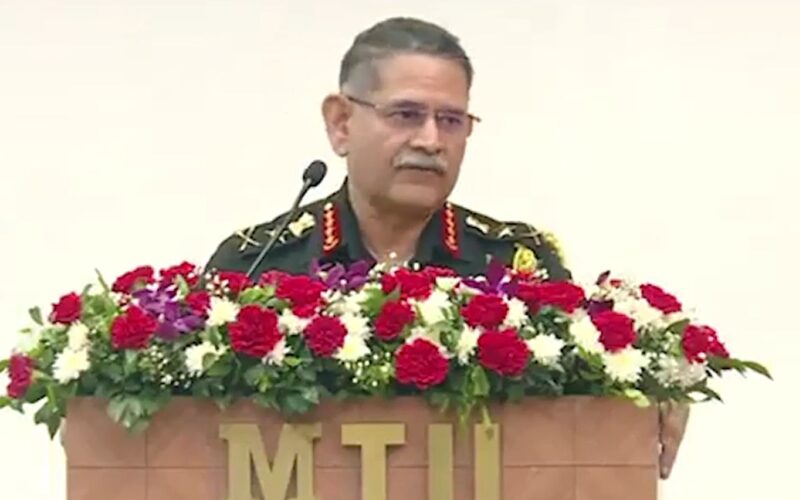Chennai (National Times): Chief of Army Staff General Upendra Dwivedi has aimed at Pakistan’s attempt to paint itself as the winner of Operation Sindoor, describing the mission as a high-stakes chess game in which India ultimately delivered a decisive checkmate. Speaking at IIT Madras, he said the operation showcased India’s ability to fight in the “grey zone”, just short of conventional warfare, while keeping the adversary constantly guessing.
“In Operation Sindoor, we were making moves; they were making moves. You never knew what the enemy’s next step would be, and they didn’t know ours. Somewhere, we gave them the checkmate, and at times we went in for the kill, even at the risk of our losses, but that’s what this game is about,” the Army chief said.
General Dwivedi ridiculed Islamabad’s “narrative management” strategy, which sought to claim a win despite military setbacks. He pointed to the Pakistani government’s decision to promote its Army chief, General Asim Munir, to a five-star rank as part of this public messaging. “Ask any Pakistani if they lost or won, and they’ll say, ‘Our chief became a Field Marshal, so we must have won.’ This is how narrative victory works — it’s all in the mind,” he remarked.
The operation, launched on May 7 in response to the Pahalgam terror attack that claimed 26 civilian lives in Jammu and Kashmir, was backed by strong political will, he noted. “On April 23rd, we sat down with the Defence Minister and all three service chiefs. The message was clear — enough is enough. We were given the freedom to decide our course of action. That level of political clarity and confidence in the forces was unprecedented,” General Dwivedi said.
Explaining the choice of name, he said Operation Sindoor resonated deeply with the public, creating nationwide unity and support for the armed forces. “A small name can connect the whole nation. People were asking why we stopped, and that has been answered.”
The mission involved precision strikes on nine key terrorist facilities in Pakistan and Pakistan-occupied Kashmir—these targeted attacks combined air power and missile strikes, dismantling infrastructure used for cross-border terrorism. Pakistan’s retaliatory drone and missile launches were intercepted and neutralised by India’s air defence systems.
Military analysts have hailed the operation as both a tactical and psychological success for India, reinforcing deterrence against Pakistan’s state-backed terrorism and highlighting the armed forces’ capability for swift, coordinated, and non-escalatory action.

